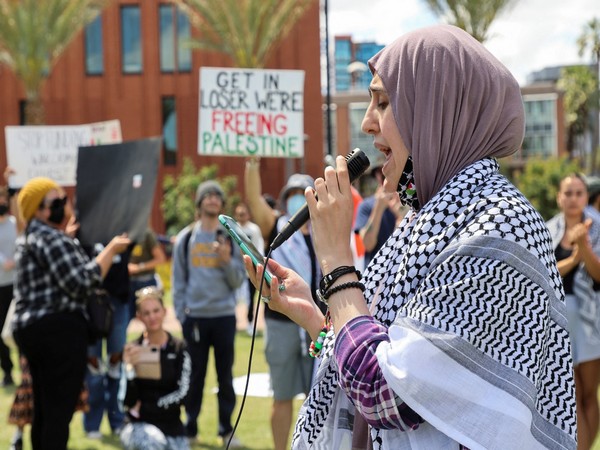In a series of tense confrontations, more than 200 individuals found themselves in handcuffs following protests at Northeastern University, Arizona State University, Indiana University, and Washington University in St Louis, The New York Post (NYT) reported.
These events, unfolding against the backdrop of heightened tensions in the ongoing Israeli-Palestinian conflict, underscore the challenges faced by universities nationwide as they grapple with the increasingly visible demonstrations and encampments on their campuses.
Since April 18th, when Columbia University in New York City saw the New York Police Department dismantle a protest encampment, over 700 protesters have been arrested across US campuses. Among the recent wave of arrests, one notable figure stands out: Jill Stein, the Green Party’s 2024 presidential candidate, alongside her campaign manager and another staff member, were apprehended at Washington University in St Louis, according to NYT.
At Northeastern University in Boston, the scene unfolded early Saturday morning as Massachusetts State Police officers moved in to dismantle an encampment on the campus’s Centennial Common. The encampment, which had drawn over 100 supporters, faced repeated requests from the university administration to vacate the area. Despite these calls, many students remained steadfast.
The Northeastern spokeswoman, Renata Nyul, expressed concerns over the encampment, alleging that it had been “infiltrated by professional organisers” and decrying the use of “virulent antisemitic slurs.” However, protesters vehemently denied these claims, pointing to a video that suggested it was a pro-Israel counterprotester who had used offensive language.
As tensions escalated, the arrests began, with more than 100 protesters detained. While the exact number of students among those arrested remains unclear, the university assured that students presenting their university IDs were being released.
Alina Caudle, a sophomore at Northeastern University, reiterated the protesters’ demands for transparency regarding the university’s investments and urged divestment from companies allegedly supporting Israel’s actions in Gaza. She emphasized the diverse composition of the encampment, noting significant participation from Northeastern students, as well as support from Jewish students and faculty.
Similar scenes unfolded across the country. In Boston, Boston Police officers arrested 118 people at Emerson College, while at Arizona State University, 69 individuals were detained for setting up an unauthorised encampment. At Indiana University Bloomington, where tensions had already flared earlier in the week with the arrest of 33 protesters, an additional 23 were apprehended on Saturday.
Universities grappled with differing approaches to managing the protests. While some sought to de-escalate tensions, others, like the University of Southern California and Emory University, opted for swift police intervention to disperse encampments and detain protesters.
The heightened police presence was evident on Saturday across several campuses, although not all resulted in arrests. At the University of Pennsylvania, campus police officers were stationed along barricades as over 100 protesters gathered in an encampment, with a smaller group of pro-Israel counterprotesters nearby, as reported by the NYT.
At the California State Polytechnic University, Humboldt, officers maintained a presence on the closed campus following a protest that saw demonstrators occupy two buildings earlier in the week.
Apart from arrests, universities implemented additional measures to exert pressure on protesters. Harvard University restricted access to its historic Harvard Yard, permitting entry only to those with university IDs. Despite the suspension of a pro-Palestinian group, protesters erected an encampment within the yard.
In response, Harvard’s dean of students issued a warning to students participating in the encampment, threatening disciplinary action. Similarly, Cornell University suspended four students connected with a pro-Palestinian encampment on campus, with further disciplinary actions anticipated.
Nick Wilson, one of the suspended students at Cornell, reflected on the significance of the suspension, interpreting it as a testament to the impact of their movement. Despite the challenges posed by these disciplinary measures, Wilson expressed optimism, viewing the suspension as evidence of the fear instilled in institutions like Cornell by the burgeoning movement, The New York Post reported.-ANI


